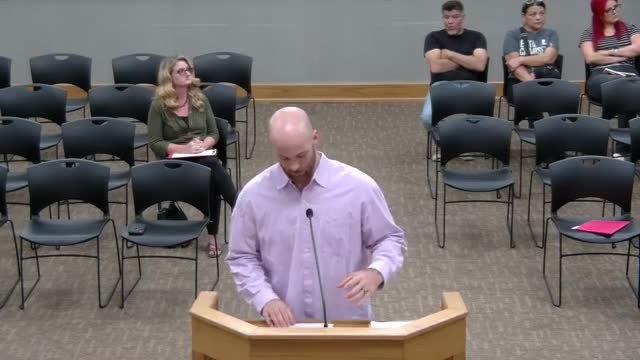Controversial land access proposal sparks heated debate
July 03, 2024 | Planning Commission Meetings, Durant City, Bryan County , Oklahoma

This article was created by AI summarizing key points discussed. AI makes mistakes, so for full details and context, please refer to the video of the full meeting. Please report any errors so we can fix them. Report an error »

In a recent government meeting, officials discussed a proposal aimed at resolving access issues related to an orphaned parcel of land in the city. The applicant has offered to deed property to provide an 80-foot access route to a 20-acre parcel, which has been deemed inaccessible due to its current configuration. The current zoning for the parcel is classified as a 1, with no immediate plans for development.
City staff recommended approval of the request, emphasizing the importance of addressing the orphaned property issue. However, concerns were raised about the adequacy of the proposed access. Several officials expressed skepticism, arguing that the access provided would not meet the practical needs for future development, particularly if multiple homes were to be built on the parcel.
One official highlighted that the existing access is effectively impassable, questioning whether the proposal truly resolves the underlying issue. Another pointed out that the situation arose from previous improper deeding practices, which failed to reserve necessary access to a public road. This oversight has left the parcel in a state of limbo, with limited potential for development.
The discussion revealed a philosophical divide among officials regarding property rights and city planning. Some argued that property owners should have the freedom to utilize their land as they see fit, provided they comply with legal requirements. Others contended that the city has a responsibility to ensure that land use aligns with broader planning goals and does not create future complications.
As the meeting concluded, officials acknowledged the complexities of the situation, with some expressing a willingness to approve the request while others remained cautious about the implications of granting access that may not be genuinely usable. The outcome of this proposal will likely set a precedent for how similar cases are handled in the future.
City staff recommended approval of the request, emphasizing the importance of addressing the orphaned property issue. However, concerns were raised about the adequacy of the proposed access. Several officials expressed skepticism, arguing that the access provided would not meet the practical needs for future development, particularly if multiple homes were to be built on the parcel.
One official highlighted that the existing access is effectively impassable, questioning whether the proposal truly resolves the underlying issue. Another pointed out that the situation arose from previous improper deeding practices, which failed to reserve necessary access to a public road. This oversight has left the parcel in a state of limbo, with limited potential for development.
The discussion revealed a philosophical divide among officials regarding property rights and city planning. Some argued that property owners should have the freedom to utilize their land as they see fit, provided they comply with legal requirements. Others contended that the city has a responsibility to ensure that land use aligns with broader planning goals and does not create future complications.
As the meeting concluded, officials acknowledged the complexities of the situation, with some expressing a willingness to approve the request while others remained cautious about the implications of granting access that may not be genuinely usable. The outcome of this proposal will likely set a precedent for how similar cases are handled in the future.
View full meeting
This article is based on a recent meeting—watch the full video and explore the complete transcript for deeper insights into the discussion.
View full meeting
